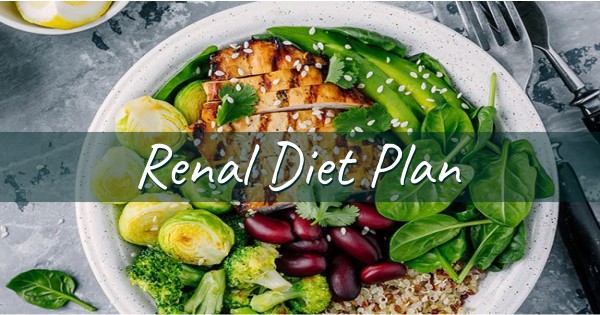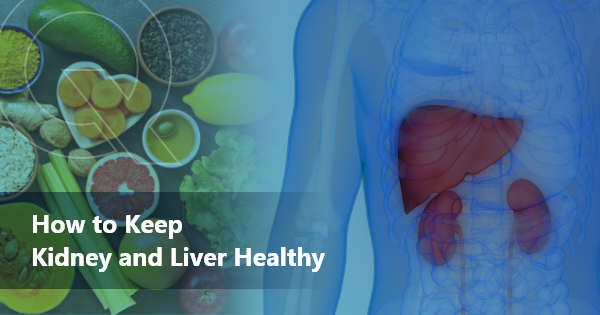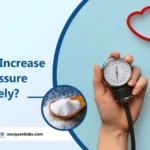Contents
What is a Renal Diet Plan?
A renal diet plan is the best option for people suffering from kidney disease. It is highly recommended for people in the late stage of renal diseases.
It includes a diet that restricts the amount of potassium, sodium, and phosphorus that a person consumes.
Why do you need a Renal Diet Plan?
A renal diet plan is recommended by dieticians and doctors for restricting the amount of waste in the blood of people suffering from late-stage kidney diseases. The blood gets its waste from the amount and type of food that people consume.
The function of a kidney is to filter out this waste from the blood. When you have kidney disease, this function gets compromised.
By limiting the waste in your blood, you are giving your kidney a helping hand in managing its functions.
Benefits of a Renal Diet Plan
- Following a renal diet plan, helps in slowing down the progression of kidney diseases. This can save you from the risk of complete kidney failure.
- It helps in maintaining a regular fluid and electrolyte balance in the body.
- For people in the early stages of renal disease, following a strict diet plan, can help avoid the risk of dialysis.
- It also helps reduce the risks of cardiovascular diseases.
What does a Renal Diet Plan include?
A renal diet plan is low in sodium and potassium. It also emphasizes the intake of high-quality protein but in lower quantities. Some patients are also advised to limit their potassium and calcium intake.
You will have to sit with your dietician and go through your conditions to get a diet plan that perfectly suits you. This is because everyone’s body is different and so is their food requirement.
We are listing the basics of what to consume and what to avoid in a renal diet plan. It will help you figure out your perfect diet.
- Sodium
Sodium is mostly found as salt in your diet. Sodium is an electrolyte that controls the amount of fluid going in and out of your body cells. It regulates blood pressure and blood volume.
When the kidney is not working properly (in the case of renal disease), it is not able to eliminate excess sodium and fluid from your body. This may cause increased thirst, higher blood pressure, shortness of breath and even increased risk of heart failure.
Low Sodium Diet Guidelines
To restrict the amount of sodium in the blood, follow the below-mentioned guidelines.
- Choose fresh fruits and vegetables
- Sodium could also be found in food substances other than salt. For example, it is used in ice creams as sodium alginate and sauces as sodium benzoate. Always read food labels to know the amount of sodium in them.
- Patients with renal diseases are advised to cook food without salt and add a permitted amount of salt while eating. By doing so, you can keep a watch on your daily salt intake.
- You should also check if your medication has sodium in it. Notify your doctor about the same.
- Potassium
Potassium helps in keeping the heartbeat regular. It also regulates muscle contraction. The excess potassium in the blood is secreted out by the kidneys. If your kidneys are not functioning well, this excess potassium builds up in the blood.
This could lead to a serious condition called hyperkalemia. It leads to muscle weakness, irregular heartbeat, slow pulse and even death.
Low Potassium Diet Guidelines
- Limit your dairy intake to around 8 oz per day. Speak to your dietician for the same.
- Consume fresh fruits and vegetables. Avoid vegetables with a higher potassium intake.
- Read food product labels to avoid products containing potassium chloride.
- Phosphorus
This mineral is important for strengthening bones. Excess phosphorus is eliminated in urine. If not eliminated, this excess phosphorus can drain out calcium from the bones, making bones weaker.
Low Phosphorus Diet Guidelines
- Sit with your dietician to find food products with a higher phosphorus content. Try to remove them or limit them in your diet.
- Cold drinks, dairy products, and vegetables like sweet potatoes are high in phosphorus. Avoid them.
- Read food labels properly to eliminate the consumption of snacks high in phosphorus.
- Protein
Protein is essential for tissue repair and maintenance. The waste from protein is filtered and secreted out by kidneys. In the case of a kidney-related disease, protein waste accumulates in the blood.
Protein intake is very tricky for renal disease patients. You need more proteins if you are on dialysis and less protein if you are in a lower stage of disease development. Consult your nephrologist or dietician for a healthy diet plan.
- Fluids
Kidneys regulate the amount of fluid in the body by secreting excess fluid as urine. When you have a renal disease, your urine volume decreases. This means that if you consume more fluid, it would build up in your blood.
Excess fluid in the blood causes puffiness in the face, swelling of the hands and legs, and high blood pressure. Patients at different stages of renal disease are instructed for different volumes of fluid intake per day.
Low Fluid Intake Guidelines
- Monitor your fluid volume according to the doctor’s instructions.
- Remember that fluid intake is not just water. It includes tea, coffee, and fruits as well.
- Reduce salty, spicy food from your diet. They increase thirst.
Conclusion
A renal diet plan can help you heal better if you are suffering from kidney disease. It decreases the chance of your disease advancing to a critical level. Do not follow a general diet plan. Follow a diet plan that is made specially to cater to your individual needs.
A renal diet is your best choice for chronic kidney disease. Your dietary habits can help you get better soon. It will also help to balance your body’s nutritional requirements.
Disclaimer:
This blog is for informational purposes only and should not be construed as advice or as a substitute for consulting a physician. It is not a substitute for medical advice or treatment from a healthcare professional.
Sources





